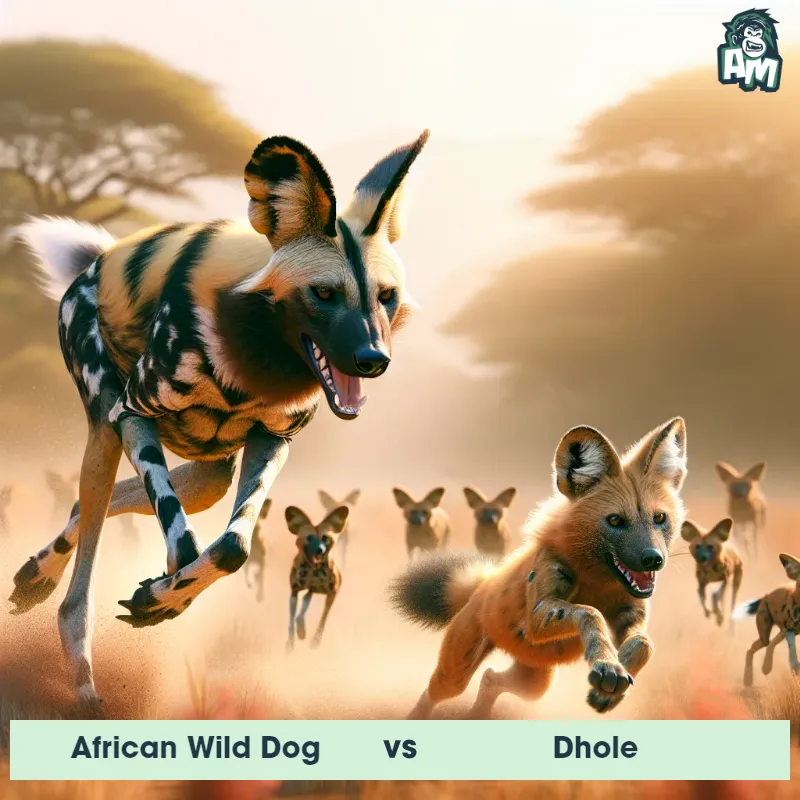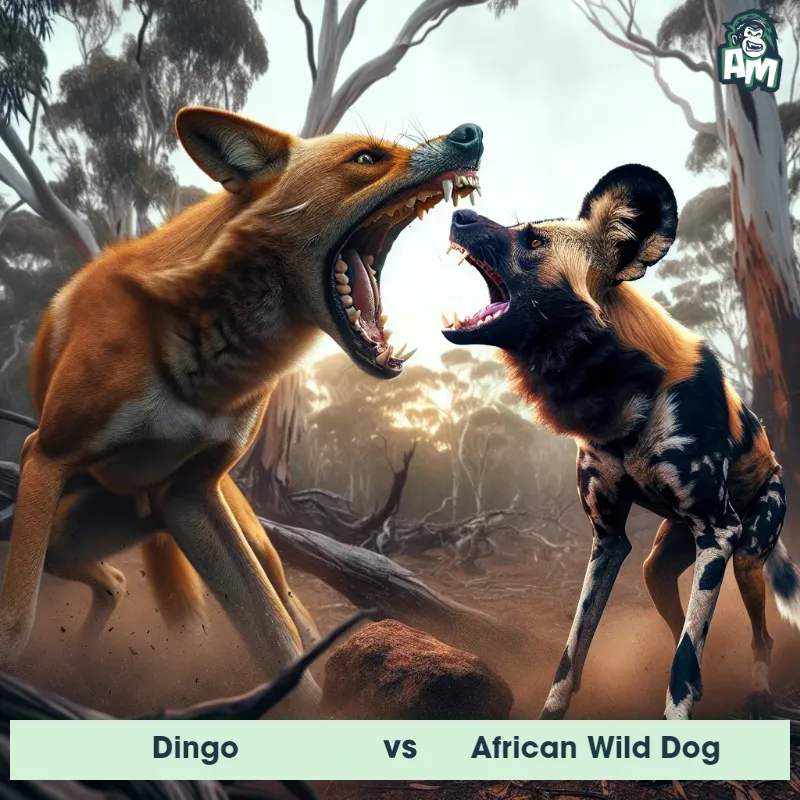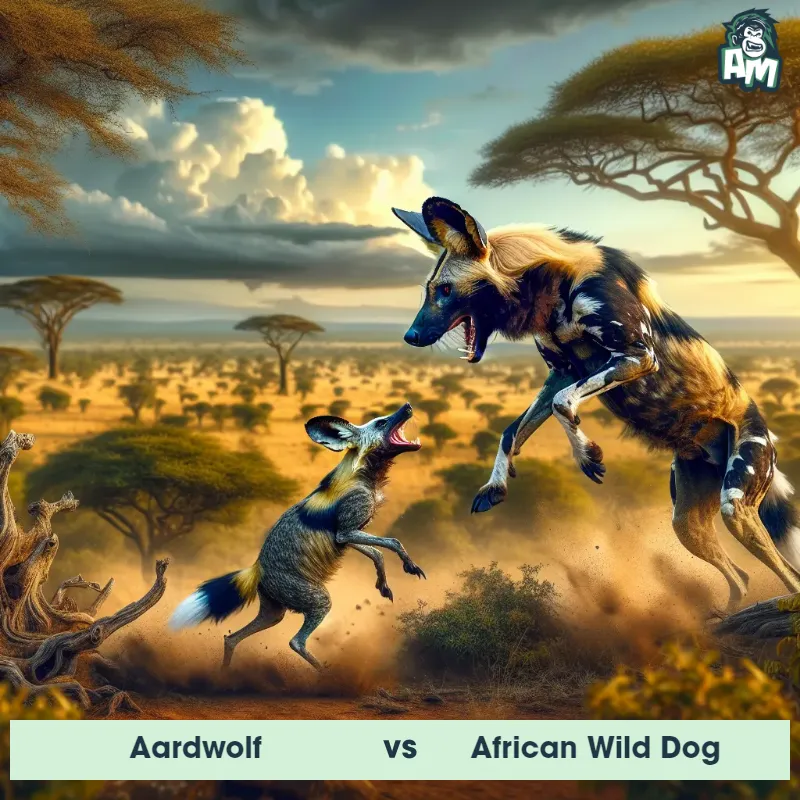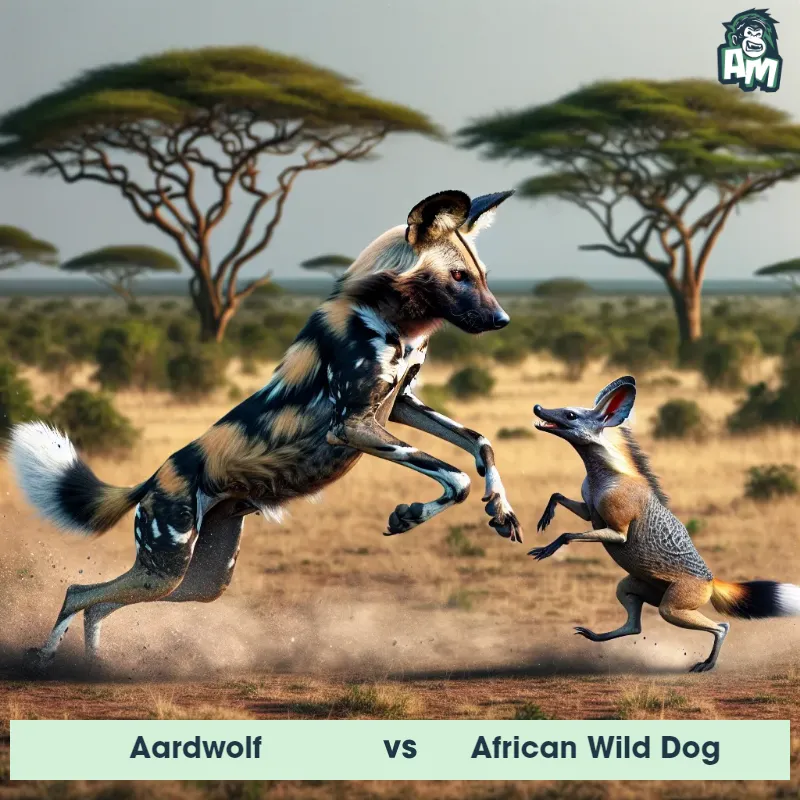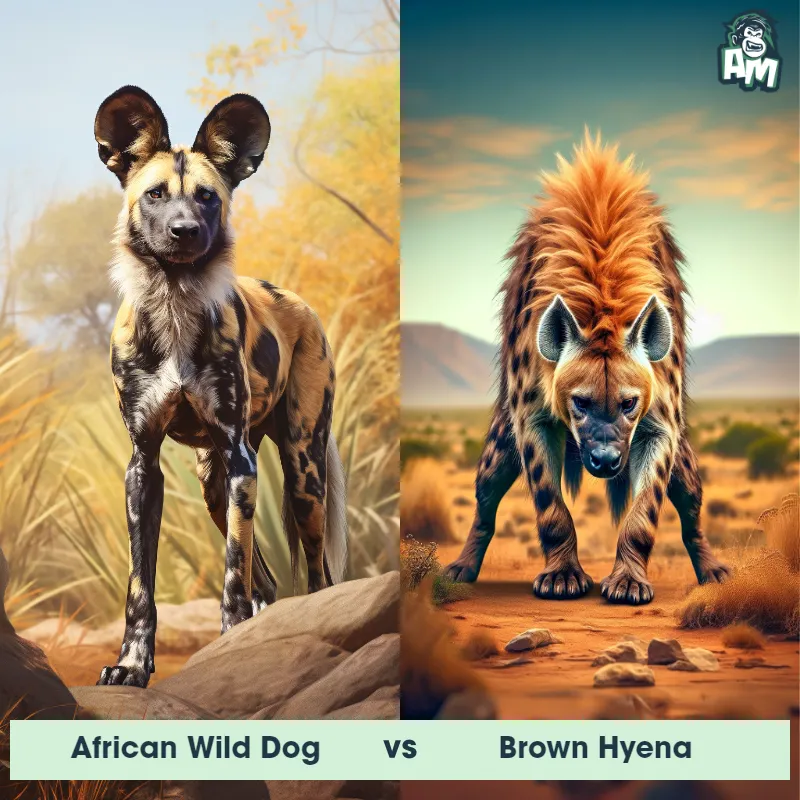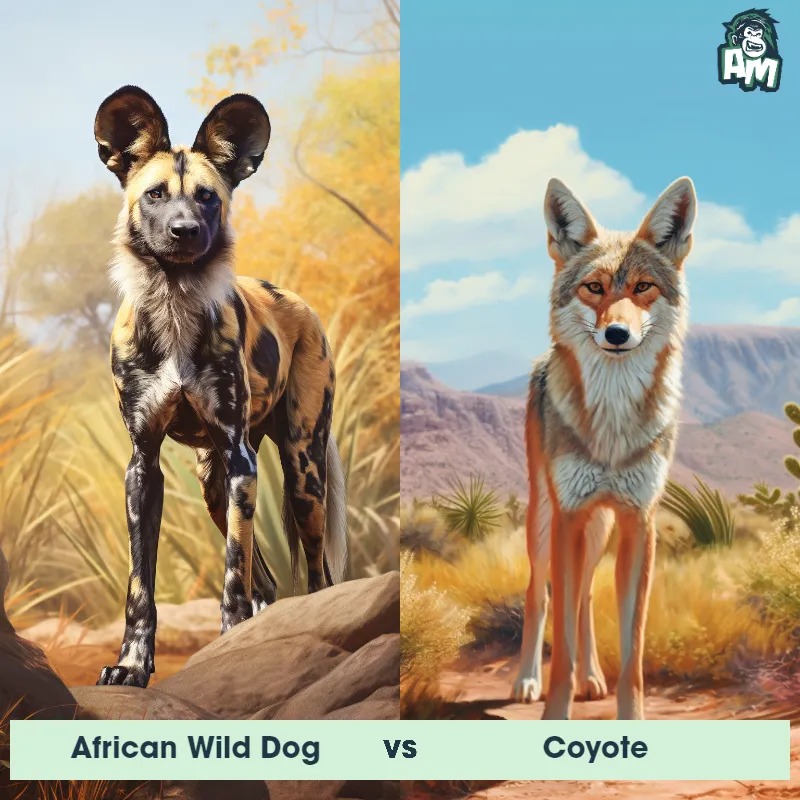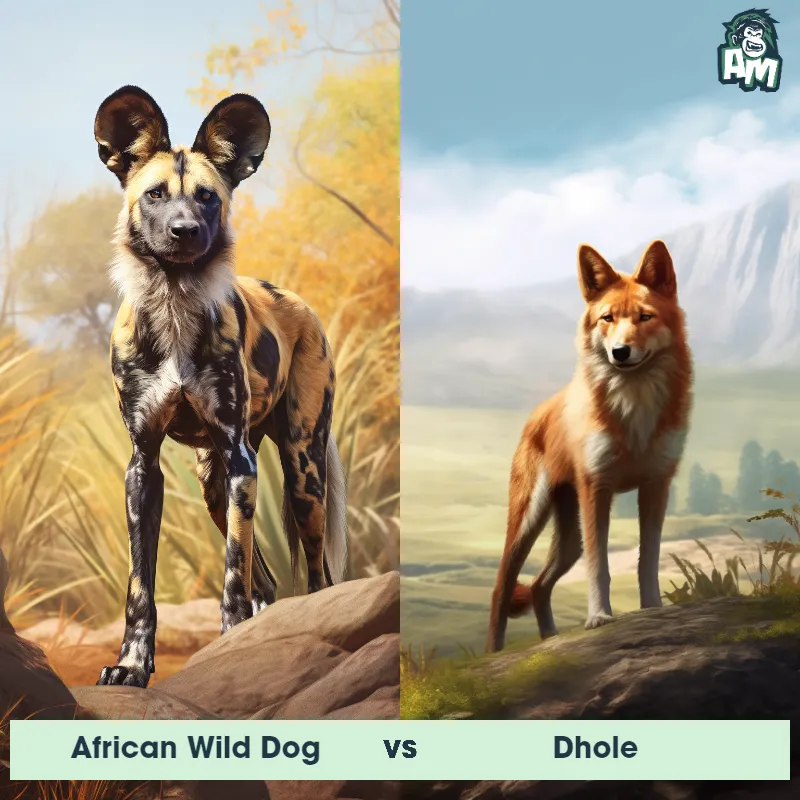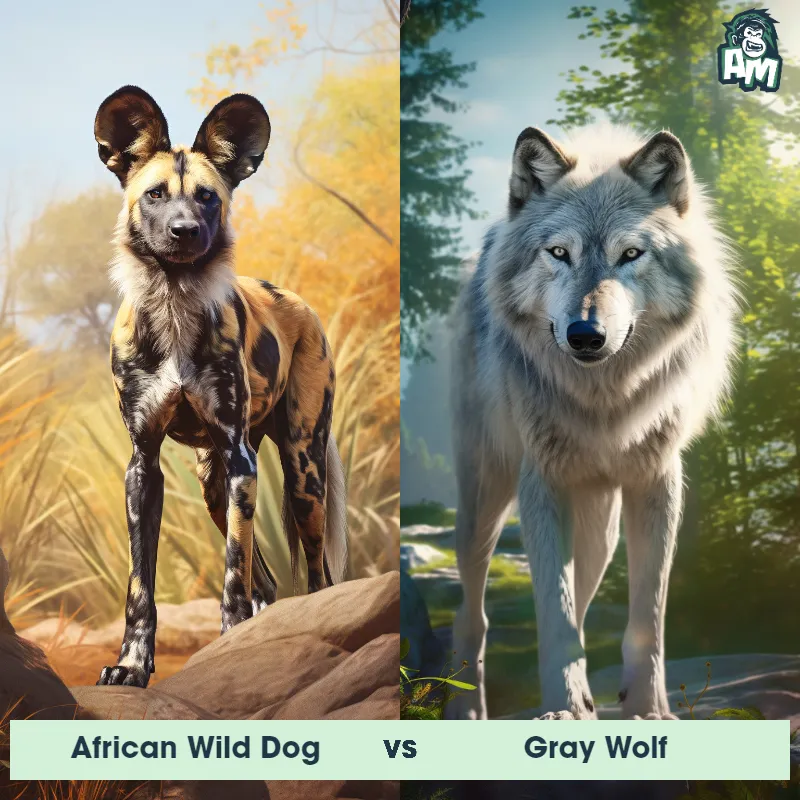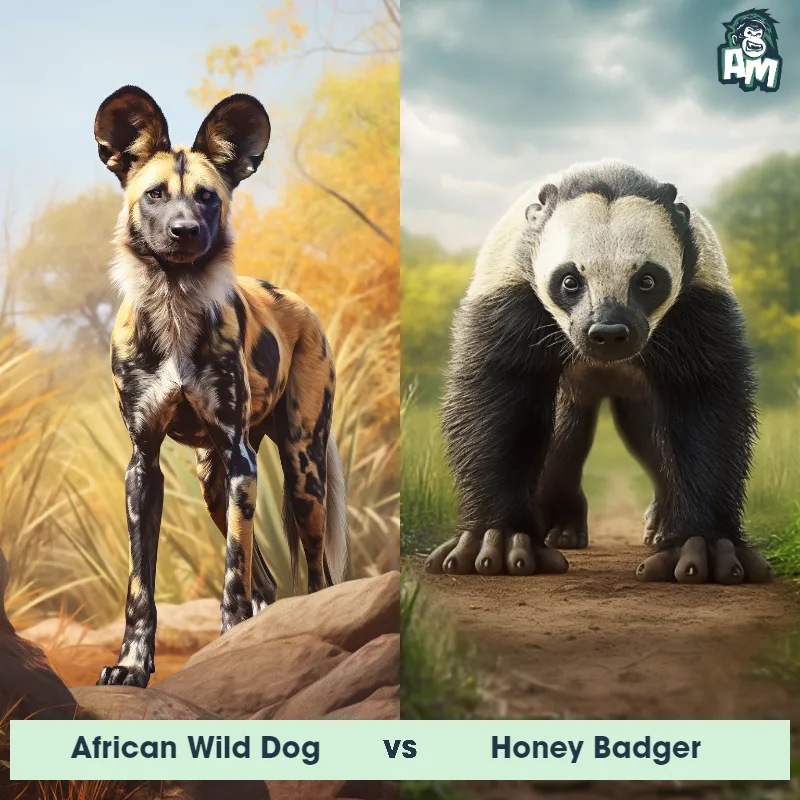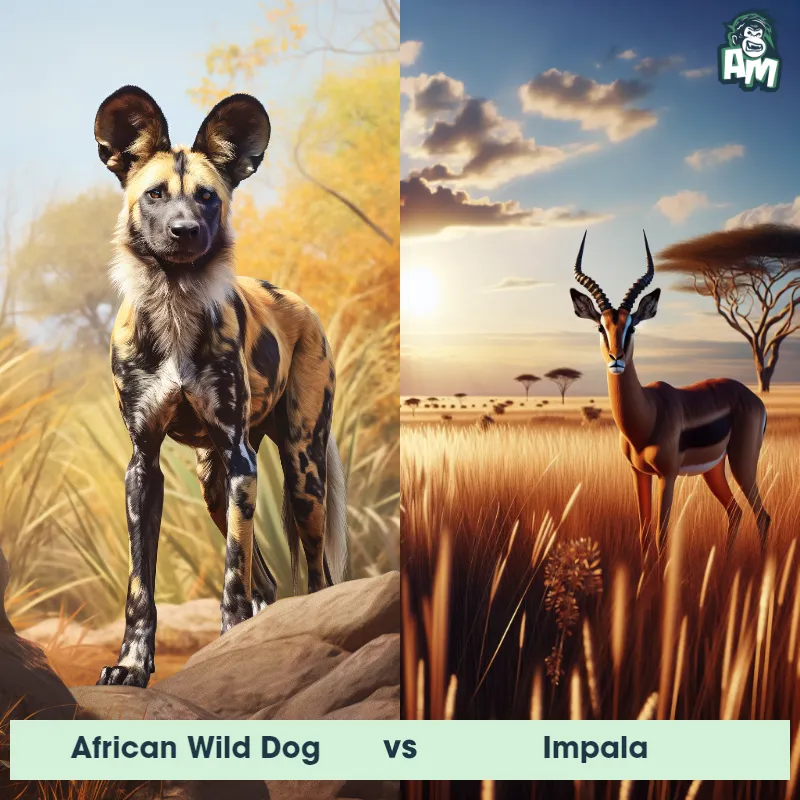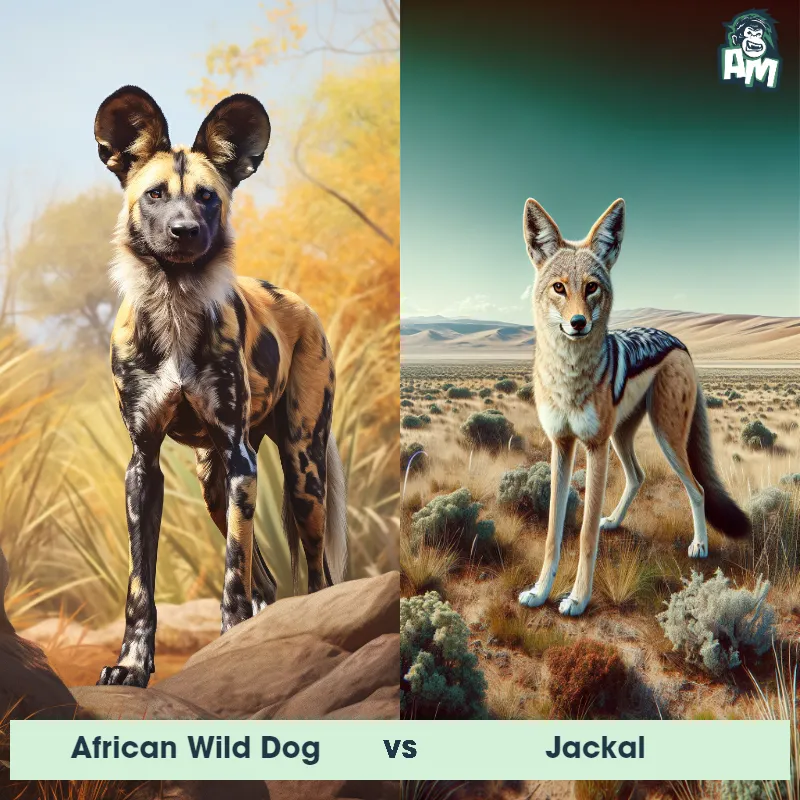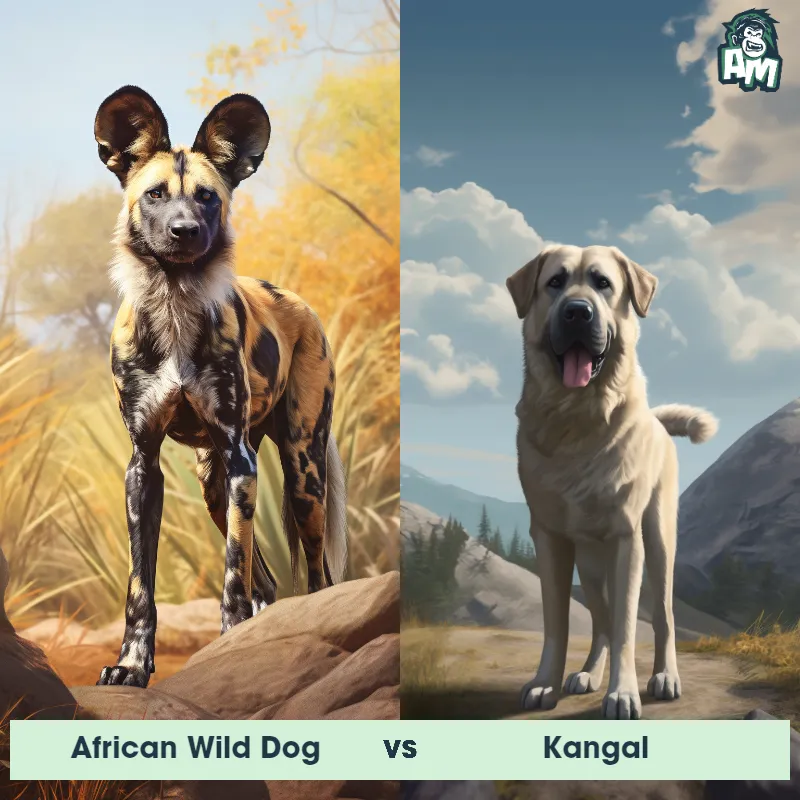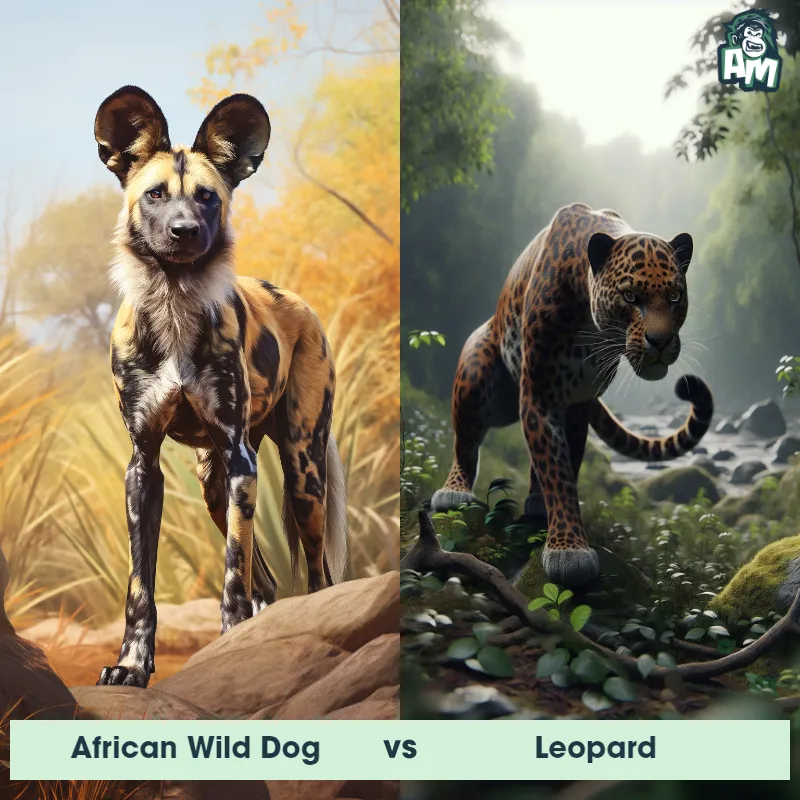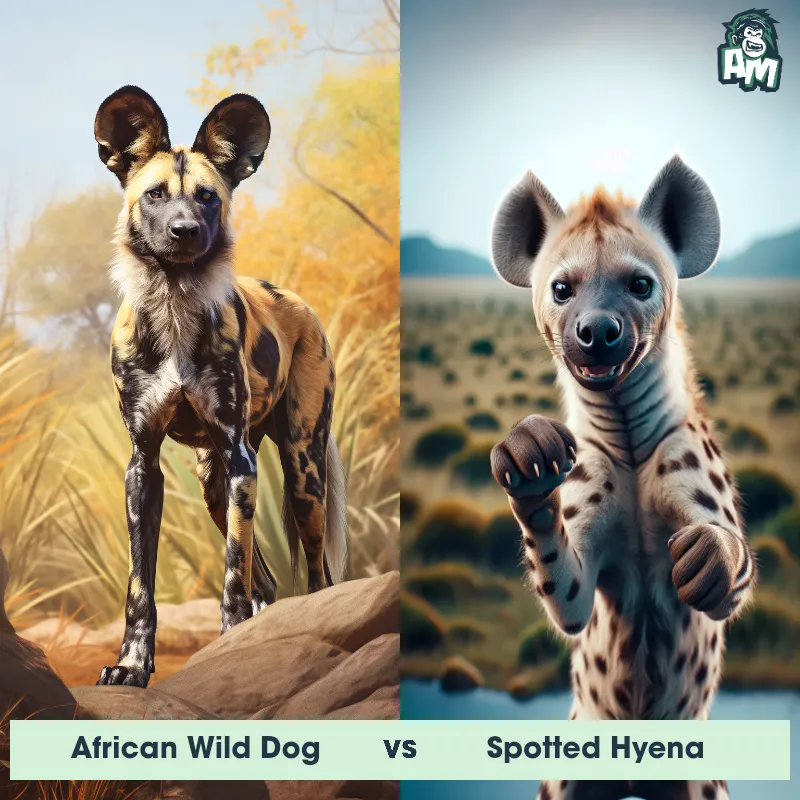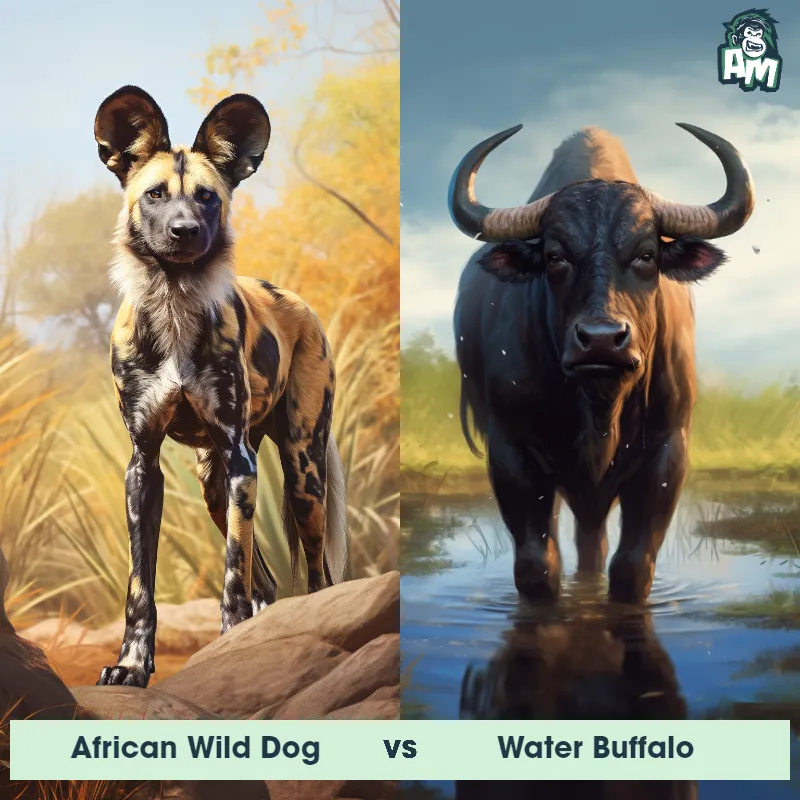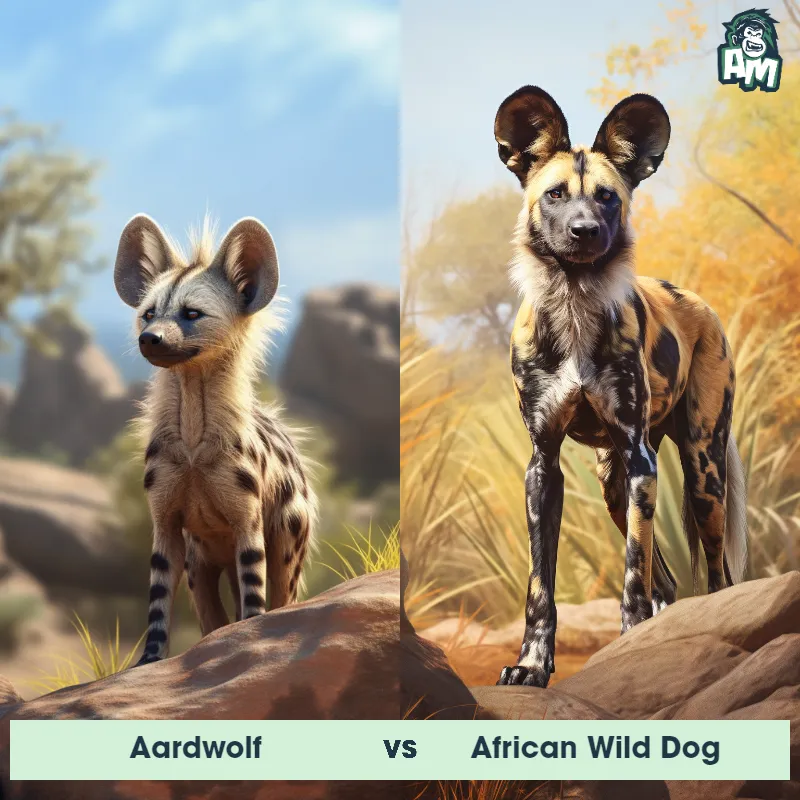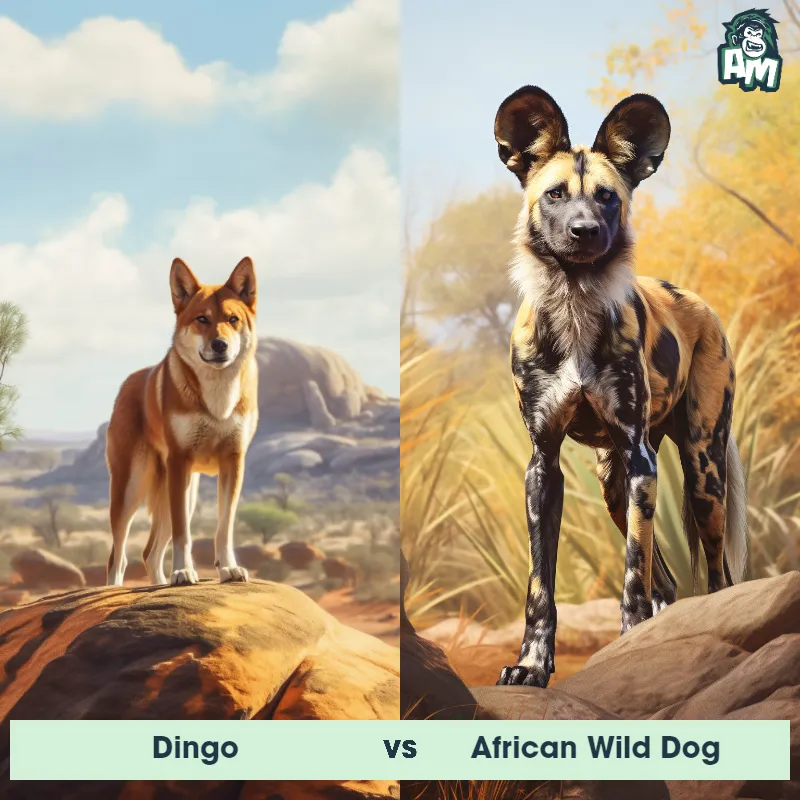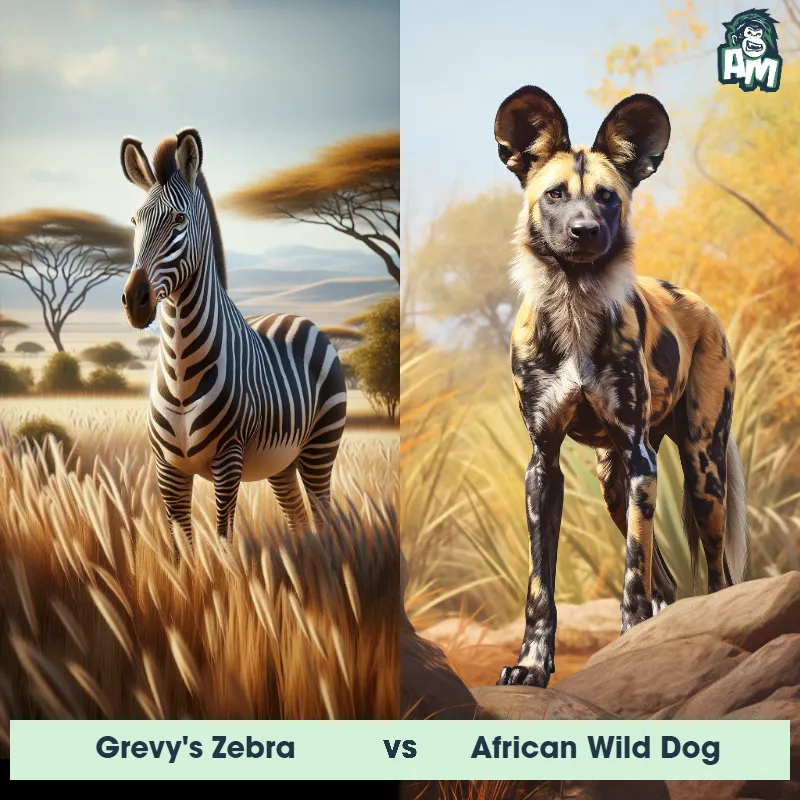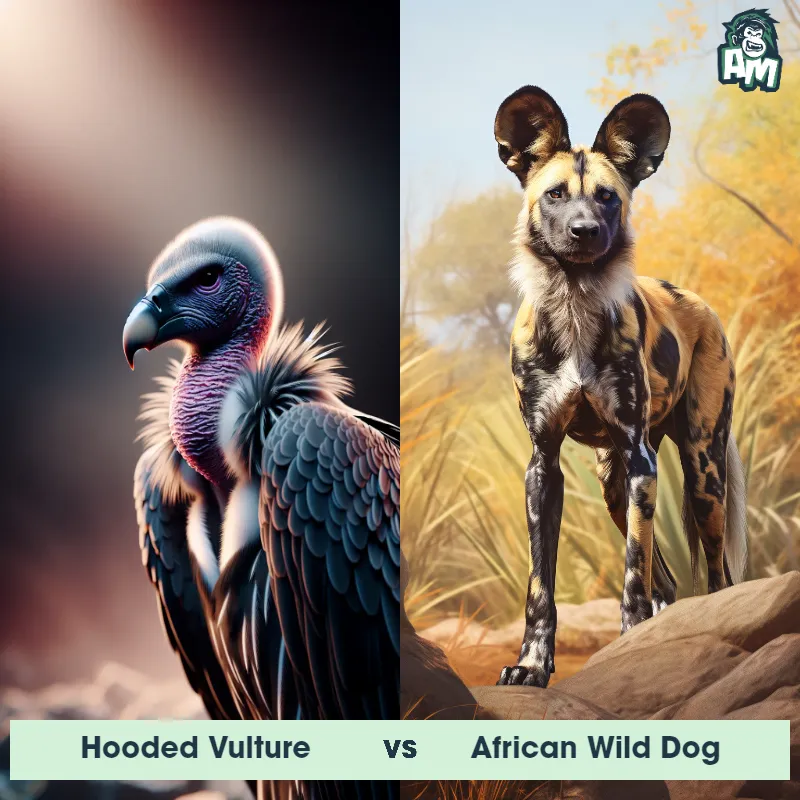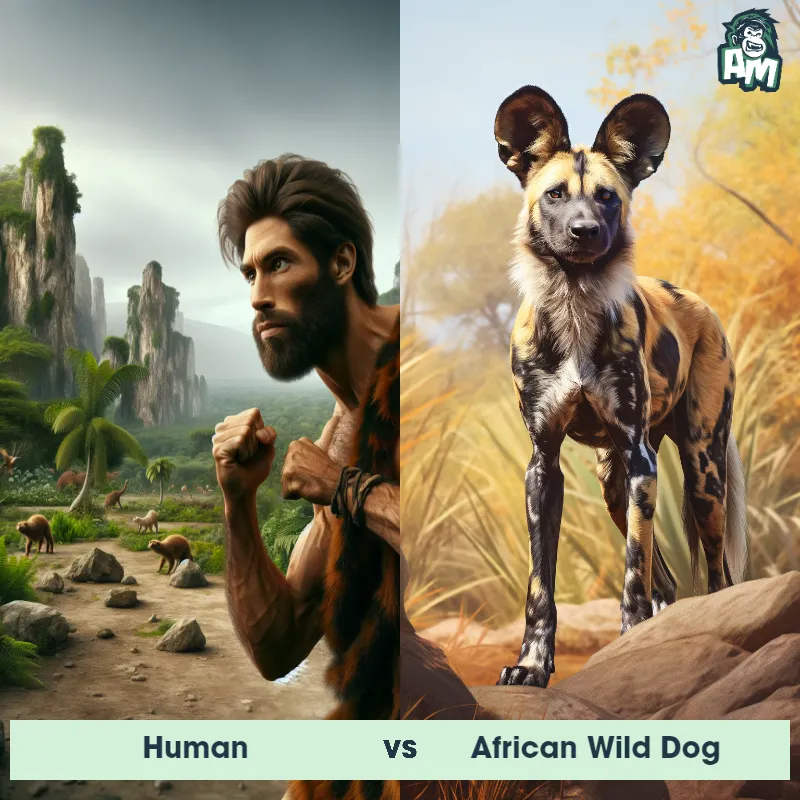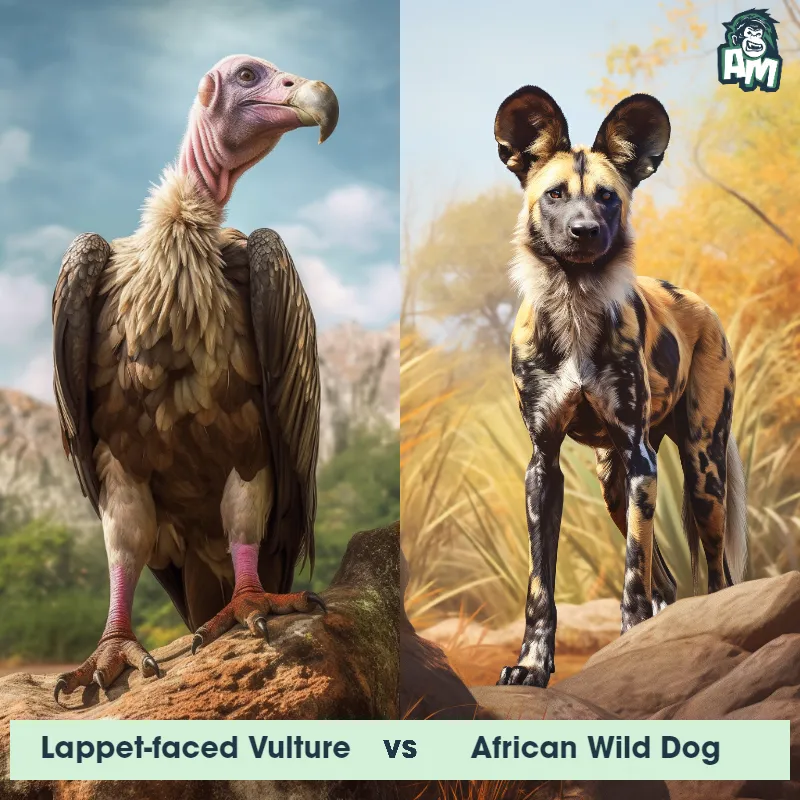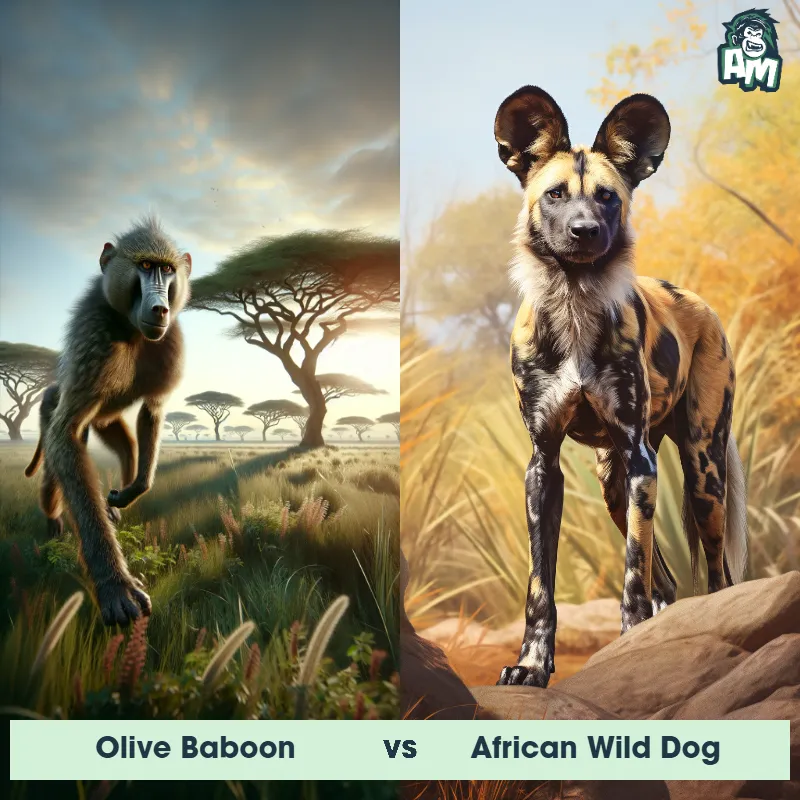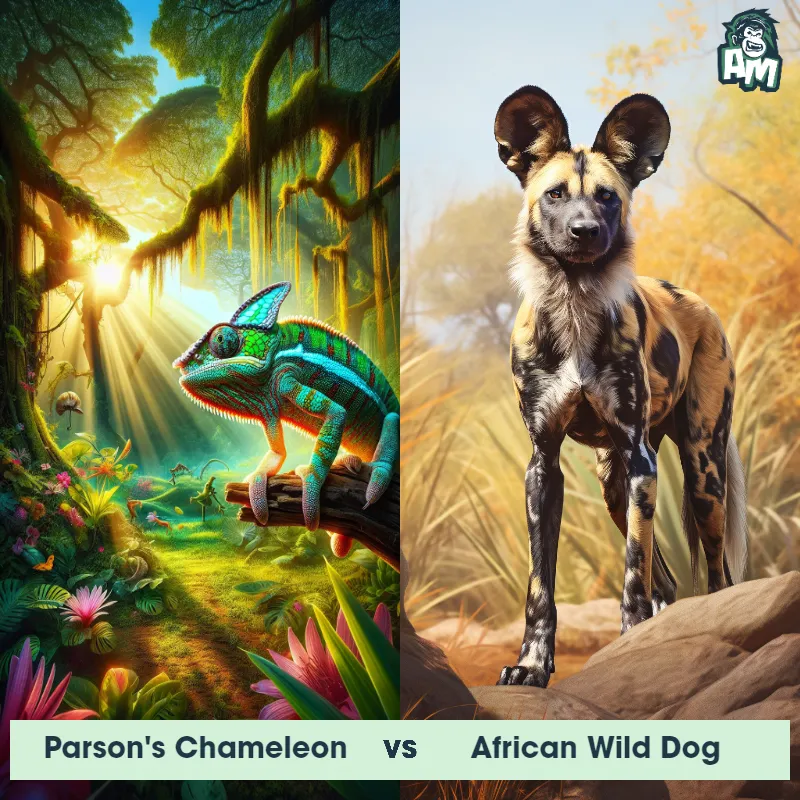The African Wild Dog
The African Wild Dog, also known as the Painted Dog or Cape Hunting Dog, is a highly social and intelligent carnivorous mammal native to sub-Saharan Africa. They are known for their distinctive coat pattern, which is a mosaic of black, white, and tan patches that is unique to each individual. These dogs have long legs and large rounded ears, giving them a unique appearance. They are excellent hunters, possessing incredible stamina and teamwork and can reach speeds of up to 37 miles per hour when chasing prey.
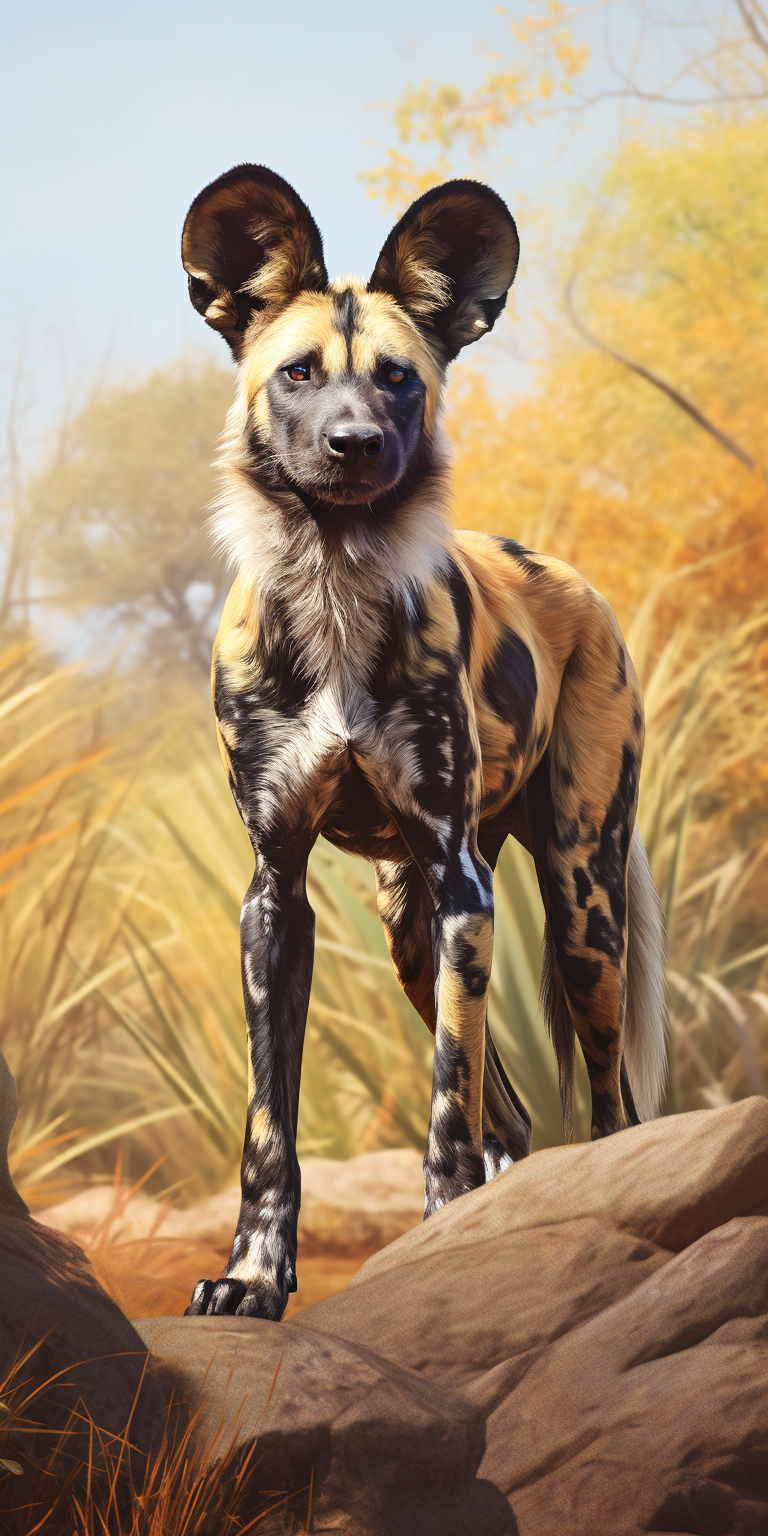
| African Wild Dog | |
|---|---|
| Size | 30-40 inches (76-102 cm) at the shoulder |
| Weight | 44-55 pounds (20-25 kg) |
| Speed | Speed: 44 mph (71 km/hr) |
| Key Strength | Stamina and teamwork during hunts |
| Biggest Weakness | Smaller size compared to other predators |
| Scientific Name | Lycaon pictus |
| Family | Canidae |
| Habitat | Savannas, grasslands, and woodlands |
| Geography | Sub-Saharan Africa |
| Diet | Carnivorous, primarily hunting antelopes and other ungulates |
| Lifespan | 10 years - 12 years |

The African Wild Dog
The African Wild Dog, also known as the Painted Dog or Cape Hunting Dog, is a highly social and intelligent carnivorous mammal native to sub-Saharan Africa. They are known for their distinctive coat pattern, which is a mosaic of black, white, and tan patches that is unique to each individual. These dogs have long legs and large rounded ears, giving them a unique appearance. They are excellent hunters, possessing incredible stamina and teamwork and can reach speeds of up to 37 miles per hour when chasing prey.
Fun Fact: African Wild Dogs have one of the highest hunting success rates among large predators, with around 80% of their hunts resulting in a kill, compared to the success rate of only about 30% for lions.
| African Wild Dog | |
|---|---|
| Size | 30-40 inches (76-102 cm) at the shoulder |
| Weight | 44-55 pounds (20-25 kg) |
| Speed | Speed: 44 mph (71 km/hr) |
| Key Strength | Stamina and teamwork during hunts |
| Biggest Weakness | Smaller size compared to other predators |
| Scientific Name | Lycaon pictus |
| Family | Canidae |
| Habitat | Savannas, grasslands, and woodlands |
| Geography | Sub-Saharan Africa |
| Diet | Carnivorous, primarily hunting antelopes and other ungulates |
| Lifespan | 10 years - 12 years |
Match Highlights
African Wild Dog Matchups
We use AI to simulate matchups between the African Wild Dog and other animals. Our simulation considers size, strength, and natural predatory behaviors to determine the most likely outcome.
African Wild Dog: Diet, Predators, Aggression, and Defensive Behaviors
What do African Wild Dogs eat?
African Wild Dogs primarily hunt large hoofed animals such as antelopes, zebras, and wildebeests. They are skilled hunters and work together in packs to chase down their prey. They are also known to scavenge from other predators or steal kills from other animals.
Do African Wild Dogs have any predators?
While African Wild Dogs are skilled hunters and can defend themselves well against predators, they do face threats from larger predators such as lions and hyenas. These predators may compete with Wild Dogs for food or may target them as competition.
Are African Wild Dogs aggressive?
African Wild Dogs are not generally aggressive towards humans, but they can be aggressive towards other predators or animals that threaten their pack or territory. They are highly social animals and rely on cooperation within their pack for survival.
Do African Wild Dogs fight?
African Wild Dogs may engage in fights with other predators or within their own pack to establish dominance or resolve conflicts. These fights can be intense but are usually brief, as the pack hierarchy helps maintain order within the group.
How do African Wild Dogs defend themselves?
African Wild Dogs rely on their pack structure and cooperation to defend themselves against threats. They use their strong teamwork and communication skills to outmaneuver predators or other threats. They also have sharp teeth and powerful jaws that they can use in self-defense if needed.
What is the biggest weakness of African Wild Dogs in a fight?
One weakness of African Wild Dogs in a fight is their relatively smaller size compared to some of their predators, such as lions. While they are fast and agile, they may struggle to defend themselves against larger predators in a one-on-one confrontation. However, their strength lies in their pack structure and teamwork, which can help them overcome this weakness in a fight.
Fun Fact: Unlike other members of the dog family, African Wild Dogs have only four toes instead of five on their front feet, which makes their tracks more similar to those of cats.
Fun Fact: These dogs have a unique way of communicating with each other. They have a wide range of vocalizations, including a distinctive high-pitched "chirping" sound, called a "hoo" call, which they use to communicate and rally their pack members before a hunt.



